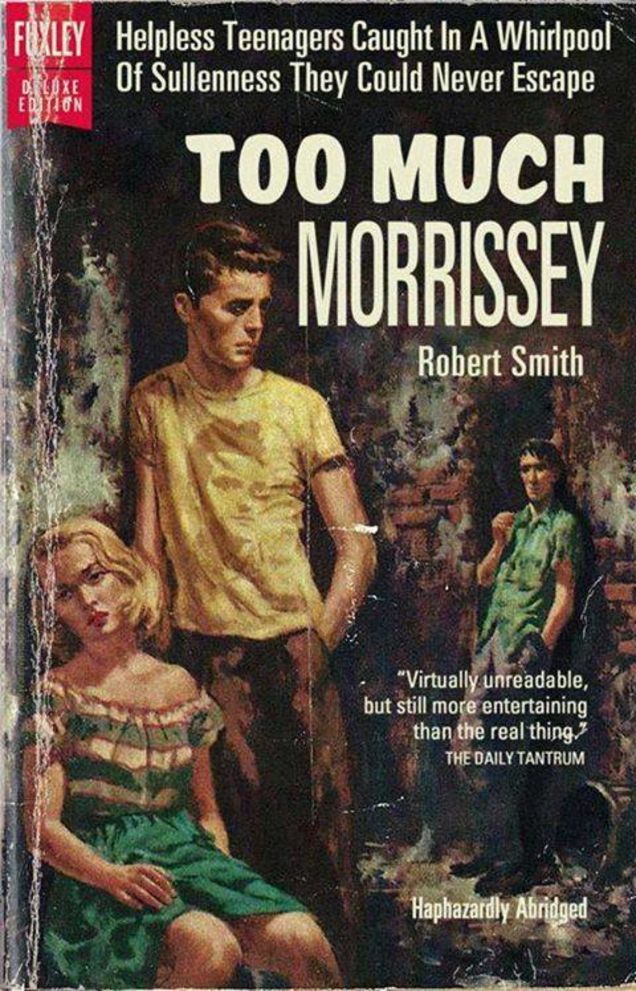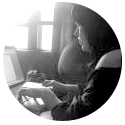Are you a bad writer?
 I realise I am playing with fire with the title of this blog post. (Next up: EBooks Are The Devil And Will Kill Us All!) I also realise that at least one person has already probably protested that “there are no bad writers”. I will address this only briefly: You Could Be Wrong. You’re welcome.
I realise I am playing with fire with the title of this blog post. (Next up: EBooks Are The Devil And Will Kill Us All!) I also realise that at least one person has already probably protested that “there are no bad writers”. I will address this only briefly: You Could Be Wrong. You’re welcome.
This post is not addressing bad writing, by the way. Such a beast definitely exists. (See: Bulweller-Lytton Fiction Contest, The.) The issue with it, however, is how subjective it is. Everyone’s tastes are different. Your sublime treatise on the delicacy of the human condition is your friend’s snore-fest. It’s a slippery slope.
So today’s topic is not a This Book Is A Total Piece of Crap, No It Isn’t You Wouldn’t Know Good Literature If It Was Shoved Up Your Kindle slanging match, fun though that may be. (And, on that, I have seen people almost come to blows over whether Jonathan Franzen’s Freedom is a superb piece of modern American literature or the biggest pile of wank that $34.95 can buy. Seriously; it almost derailed a whole dinner party before the pudding had even hit the table.) Today we are concentrating on the bad writer, not what they produce.
Bad writers all have one thing in common. But it’s probably not what you think.
- Writing without a word count does not make you a bad writer.
- Having no idea who wrote The Life of Pi does not make you a bad writer.
- Arguing that there is merit to a Jilly Cooper book does not make you a bad writer.
- Neither does writing while drunk, refusing to shower, and taking up Cuban cigars but all of these habits will make you less pleasant to be around.
What makes you a bad writer is refusing to deal with criticism.
Part of the whole process of this insane creative pursuit is to constantly try and improve your work. You never want your first novel, draft or stanza to be the best one, because where else is there to go from there but down? We should always be looking for footholds up the creative rock face.
Sometimes they appear by their own design, such as those moments when you realise that your heroine should actually be a neurosurgeon, not a pilot, because then it makes her pathological fear of needles rather more pertinent to the plot line. Other times, however, you need someone else to point them out to you.
Other people can see a plot hole you were somehow blind to, even if it is the size of Alan Jones’s ego. They can also mention politely that your main character’s dog has changed name and breeds several times and now it sounds like the MC is running a canine shelter. Some may pick out the fact that you use the word ‘rumpled’ far too often. Not that that’s happened to me. *cough*
An exterior eye can also point out your particular writing weaknesses, the ones that persist from work to work. You probably know them deep down, even if you don’t mention them out loud. They are the bits of your novel that you skim over or, if faced with the prospect of having to revise them, are suddenly gripped with an overwhelming urge to go and sort out your sock drawer (#procrastibaking, anyone?) or trawl YouTube for Tom Hiddleston videos.
In the face of critical feedback, what does the bad writer do? They bluff and rebuff. “Ah, they just didn’t get it,” is the common catchcry. “You don’t understand me/art/genre-bending sci-fi,” they’ll say, a Teflon-coated Godzilla with a pen in their stubby ten-foot hand, brushing off every sling and arrow as they stomp back to their desk to continue murdering prose.
The tragedy of it is the fact that bad writers do not understand this very important point: constructive criticism is a gift to writers from their readers. It is something to be extremely grateful for. “This is great!” and “This totally sucks!” are both equally unhelpful if no further justification is offered. What every writer should be asking is, “But why?” The ‘why’ is the gold you’re looking for.
This is not to say that you should act on every single piece of advice, or take to your bed for days if someone gives your work a resounding “eh”. Some people may just not click with your particular sense of humour, or have an inherent distaste for your subject area, and there’s nothing you can do about that. However, if different people are consistently pointing out the same areas of concern, listen to them. There is probably a good reason why they’re telling you this.
So there it is. How to not be a bad writer in one easy step: don’t ignore feedback that can teach you something. Be wary of waving a paw in a reader’s direction and speculating that they just don’t “get” you. Your job, as a writer, is to communicate. Make sure you do it.
Want more publishing insights, writing tips, or just general book-related gossip? Just click here to sign up for my e.newsletter!






